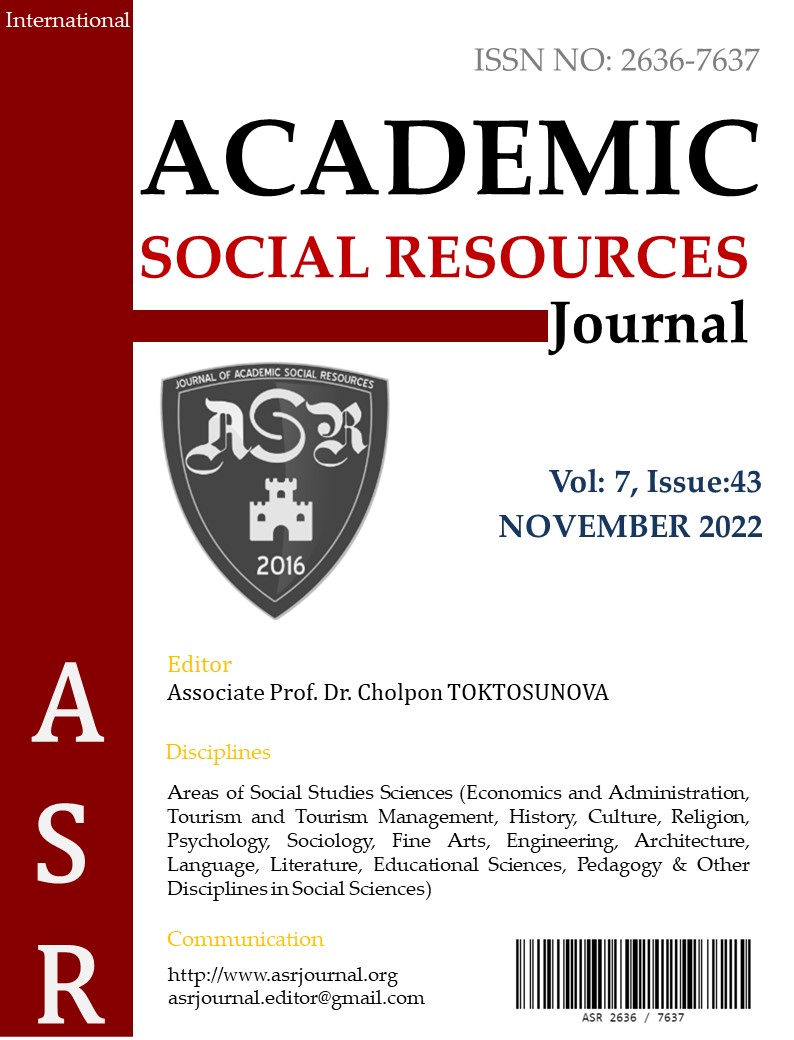Author :
Abstract
Genel olarak bir aydın hareketi olan Aydınlanma’nın 1688 İngiliz Devrimi’yle başladığı ve 1789 Fransız Devrimi’yle zirve noktasına vardığı ifade edilir. Aydınlanma Felsefesinin altında yatan güç, Kilise ve Kraliyet Mahkemesi veya aristokrasi tarafından temsil edilen ortaçağın dine ve geleneğe güvenmesine karşı, bilgiye ulaşmaya yönelik bilimsel yaklaşıma artan bir inanç olmuştur. Aslında Avrupalıların bireysel ve toplumsal yaşamını yeni bir anlayışla şekillendirme çabası olarak görebileceğimiz bahse konu dönem, Batı medeniyetinin tarihsel gelişiminin ve değişiminin fikirsel ve kültürel sonucu olarak görülebilir. Dolayısıyla Aydınlanma, bir düşünceler yumağıdır ve ayrıca bu yumakta ipler birbirine dolanmış olup karmakarışıktır. Filozoflar, el attıkları çeşitli meseleler üzerinde hem kendi aralarında, hem zaman zaman kendi içlerinde karşıtlıklar ortaya koymuş ve böylece çelişkili görüşler oluşmuştur. Doğrusu daha baştan beri birçok düşünce adamı insanlığın aydınlık bir dünyaya kavuşması yönünde gayret sarf etmiştir; ancak “Aydınlanma” adının tarihsel bağlamında bizi 18. yüzyılla sınırladığını kaydetmek gerekir. Dolayısıyla Aydınlanmacılık 17. yüzyılın bilimselliğe dayalı katı usçuluğuna, özellikle bu usçuluğun giderek yozlaşan şekillerine tepki mahiyetinde belirmiştir. Her büyük zihinsel tarih veya dönemde olduğu gibi Aydınlanma hareketinin de başlangıç tarihini sıkı bir şekilde tayin etmenin mümkün olmadığı ifade edilebilir. Ayrıca Aydınlanma düşüncesi dönemin siyasetini de etkilemiştir. Aydınlanmış despotlar kilisenin gücüne ve ayrıcalıklarına karşı çıkarak dini hoşgörüyü ve yasal reformları desteklediler.
Keywords
Abstract
It is generally stated that the Enlightenment, which is an intellectual movement, started with the English Revolution of 1688 and reached its peak with the French Revolution of 1789. The underlying force of Enlightenment Philosophy was a growing belief in the scientific approach to knowledge as opposed to the medieval reliance on religion and tradition as represented by the Church and the Royal Court or the aristocracy. In fact, the period in question, which we can see as an effort to shape the individual and social life of Europeans with a new understanding, can be seen as the intellectual and cultural result of the historical development and change of Western civilization. So Enlightenment is a ball of thoughts, and also in this ball the threads are tangled and tangled. Philosophers have put forward contradictions both among themselves and from time to time on various issues they have dealt with, and thus contradictory views have emerged. In fact, from the very beginning, many thinkers have made an effort for humanity to reach a bright world; however, it should be noted that the name "Enlightenment" in its historical context limits us to the 18th century. Therefore, Enlightenment emerged as a reaction to the strict scientific rationalism of the 17th century, especially to the increasingly degenerate forms of this rationalism. It can be stated that it is not possible to determine the beginning date of the Enlightenment movement, as it is in every great mental history or period. In addition, the thought of the Enlightenment also affected the politics of the period. Enlightened despots opposed the power and privileges of the Church and supported religious tolerance and legal reforms.
Keywords
- 1. Ağaoğulları, M.A. (2018). Sokrates’ten Jakobenlere Batıda Siyasal Düşünceler, İstanbul: İletişim Yayınları, 8. baskı.
- 2. Arslan, A. (1992). “Aydınlanma”, Çağdaş Türkiye Tarihi Araştırmaları Dergisi, 1 (2), https://dergipark. org.tr/en/pub/cttad/issue/25523/269197 (13.09.2022).
- 3. Atabay, M. (2004). Aydınlanma Çağı ve Avrupa, Ankara: Nobel Yayın, 1. basım.
- 4. Batuhan, H. (2003). “Aydınlanma Kavramı üzerine bazı düşünceler”, Türkiye’de Aydınlanma Hareketi, Dünü, Bugünü, Sorunları (25-26 Nisan 1997 Strasbourg Sempozyumu), İstanbul: Adam Yayınları.
- 5. Baykan, F. (2000). Aydınlanma Üzerine Bir Derkenar, İstanbul: Kaknüs Yayınları, 1. basım.
- 6. Black, J. (2020). Dünya Tarihi, (çev. Hamza E. SARIBAŞ), İstanbul: Othello Yayıncılık, 1. baskı.
- 7. Bristow, W.F. (2022). Aydınlanma Felsefesi, (çev. İrem Şalvarcı), İstanbul: Beyoğlu Kitabevi, 1. baskı.
- 8. Brysbaert, M. (2015). “Enlightenment, The”, The Encyclopedia of Clinical Psychology içinde, https://www.researchgate.net/publication/ 313966752_Enlightenment_The (12.09.2022).
- 9. Cevizci, A. (2002). Aydınlanma Felsefesi Tarihi, Bursa: Ezgi Kitabevi.
- 10. Çigdem, A. (2001). Aydınlanma Düşüncesi, İstanbul: İletişim Yayınları.
- 11. Çüçen, A.K. (2005). “Batı Aydınlanmasının Düşünsel Kökenleri ve Eleştirisi”, Muğla Üniversitesi Sosyal Bilimler Enstitüsü Dergisi(İLKE), Atatürk’ün Doğumunun 125. Yılı ve Cumhuriyetimizin 83. Yılı Özel Sayısı, https://dergipark.org.tr/tr/download/article-file/217373 (13.09.2022).
- 12. Hobsbawm, E.J. (2003). Devrim Çağı: Avrupa 1789-1848, Ankara: Dost Kitabevi Yayınları, 3. baskı.
- 13. Kabakçı, E., Siyasal Düşünceler Tarihi, İstanbul Üniversitesi Açık ve Uzaktan Eğitim Fakültesi, https://www.academia.edu/ 29493817/S%C4%B0YASAL_D%C3%9C%C5%9E%C3%9CNCELER_TAR%C4%B0H%C4%B0_DERS_K %C4%B0TABI (19.06.2019).
- 14. Kalın, F. (2007). “Fransız Aydınlanması ve Voltaire’de dini düşünce ve İnanç Hürriyeti”, Atatürk Üniversitesi (Yayınlanmamış Yüksek Lisans Tezi) http://acikarsiv.atauni.edu.tr/browse/531/609.pdf?show (11.10.2011).
- 15. Kiriş Yılmaz, N. (2018). “Avrupa ve Türk Aydınlanması Üzerine Bir Değerlendirme”, Tabula Rasa: Felsefe & Teoloji, sayı: 28, Eylül 2018, s. 59-70.
- 16. Köktaş, M. (2011). “İskoç Aydınlanması ve Amerika”, Liberal Düşünce Dergisi, (63), 235-256.
- 17. Taşkın, A. (2007). İskoç Aydınlanması, İstanbul: Birey Yayınları, 1. baskı.
- 18. Timuçin, Afşar (2008). “Aydınlanma Nedir?”, https://bilimvegelecek.com.tr/wp- content/uploads/2018/02/Ayd%C4%B1nlanma-nedir.pdf (10.09.2022).
- 19. Timuçin, Ali (2008). “Aydınlanmanın kaynakları ve özü”, https://bilimvegelecek.com.tr/wp-
- 20. Yalçınkaya, A. ve Ağaoğulları, M.A. (2013). Siyasi Düşünceler Tarihi, Eskişehir: Anadolu Üniversitesi Yayınları.
